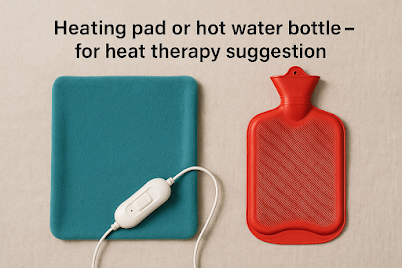Solution to Menstrual Problems: Natural Remedies and Lifestyle Tips
Solution to Menstrual Problems: Natural Remedies and Lifestyle Tips
Common Menstrual Problems
- Irregular Periods – Occurs when cycles vary in length or are missed entirely.
- Dysmenorrhea – Painful cramps that interfere with daily activities.
- Menorrhagia – Heavy bleeding during menstruation.
- Premenstrual Syndrome (PMS) – Symptoms like mood swings, bloating, and fatigue before the period.
- Amenorrhea – Absence of menstruation for three months or more (not due to pregnancy or menopause).
Natural Solutions to Menstrual Problems
1. Maintain a Healthy Diet
- Include iron-rich foods such as leafy greens, lentils, and red meat to replace blood loss.
- Avoid processed foods, sugar, and caffeine, which can worsen bloating and mood swings.
- Eat omega-3 fatty acids (found in fish, walnuts, and flaxseeds) to reduce inflammation and cramps.
2. Stay Hydrated
Drinking enough water reduces bloating, relieves headaches, and helps regulate hormones. Herbal teas like ginger or chamomile can soothe cramps and relax the body.
3. Regular Exercise
Light to moderate exercise such as walking, yoga, or cycling can improve blood circulation and reduce menstrual pain. Yoga poses like Child's Pose or Cat-Cow Stretch are particularly effective for cramps.
4. Manage Stress
High stress levels can disrupt your hormonal balance. Techniques like meditation, deep breathing, and journaling can help regulate your cycle and reduce PMS symptoms.
5. Use Heat Therapy
A warm compress or heating pad applied to the lower abdomen can relieve cramps by relaxing the muscles and improving blood flow.
6. Herbal Remedies
- Chasteberry (Vitex): Helps balance hormones and reduce PMS.
- Turmeric: Reduces inflammation and pain.
- Fennel Seeds: Known to ease cramps and regulate cycles.
- (Always consult a doctor before using herbal supplements, especially if you're on medication.)
7. Track Your Cycle
Use a period tracker app to monitor your symptoms and cycle. This can help you understand patterns and seek timely medical help if needed.
When to See a Doctor
- If you experience:
- Very heavy bleeding (changing pads/tampons every hour)
- Periods lasting longer than 7 days
- Severe pain that medication doesn't relieve
- Missed periods for 3+ months (not due to pregnancy)
It’s important to seek medical advice, as these could be signs of conditions like PCOS, endometriosis, or fibroids.
Conclusion
Menstrual problems can feel overwhelming, but with the right knowledge and care, they are manageable. Natural remedies, a healthy lifestyle, and mindful habits can greatly improve your monthly experience and overall well-being.


.jpg)


